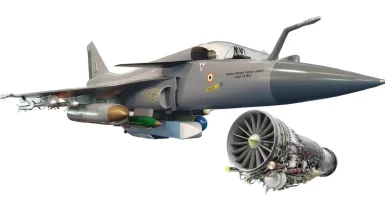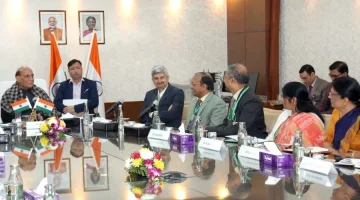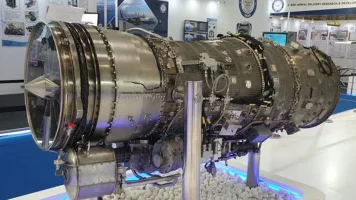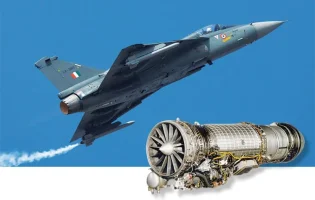- Views: 4K
- Replies: 15
Recent trade disputes between India and the United States have brought a critical aspect of India's military modernisation into sharp focus: its dependence on American jet engine technology.
This reliance on the U.S.-made General Electric (GE) engines for the indigenous Tejas fighter jet program is now being seen as a significant strategic vulnerability, prompting renewed and urgent calls to fast-track the development of India's own Kaveri 2.0 engine.
Defence analysts argue that to achieve true strategic autonomy and secure its flagship aviation projects, India must prioritise the indigenous Kaveri 2.0. This next-generation power plant, designed to produce 90-95 kilonewtons (kN) of thrust, is being positioned as a long-term solution.
A successful Kaveri 2.0 could power future fleets of Tejas Mk1A and Mk2 aircraft, significantly reducing dependence on foreign suppliers, lowering procurement and operational costs, and potentially opening new avenues for defence exports.
While the India-U.S. strategic partnership has deepened in recent years, particularly in defence cooperation, it is not immune to geopolitical shifts and economic disagreements. The ongoing tariff impositions and retaliatory measures could potentially spill over into the defence sector.
Historically, the U.S. has often balanced its relationships in South Asia, and any strategic realignment could jeopardise the stable supply of critical military hardware to India. This uncertainty makes over-reliance on a single country for a core technology a high-risk proposition for India's national security.
This vulnerability directly impacts the backbone of the Indian Air Force's modernisation plan.
The Tejas Mk1A fleet currently operates on the American GE F-404 engine, which produces approximately 84 kN of thrust. The more advanced Tejas Mk2, a 4.5-generation fighter, is slated to be powered by the more powerful GE F-414 engine, capable of 98 kN of thrust.
A landmark deal was recently announced for GE to co-produce these F-414 engines in India with Hindustan Aeronautics Limited (HAL). However, any disruption to this agreement due to sanctions or policy changes could severely delay or cripple these vital programs.
The original Kaveri engine was developed by the Gas Turbine Research Establishment (GTRE), a laboratory under the Defence Research and Development Organisation (DRDO).
The project was intended to power the Tejas but was officially delinked from the program after it failed to meet the required thrust and reliability standards within the stipulated timeframe.
Despite these earlier setbacks, the technology and expertise gained are now being leveraged for the development of the Kaveri 2.0, which aims to provide a viable, homegrown alternative to the imported GE engines.
Successfully developing the Kaveri 2.0 would insulate India's critical defence projects from external political pressures.
An indigenous engine ensures that the production lines for the Tejas Mk2 and, crucially, the futuristic Advanced Medium Combat Aircraft (AMCA), India’s fifth-generation stealth fighter program, can proceed without interruption, regardless of shifts in international diplomacy.
This capability is the essence of strategic independence in defence manufacturing.
From an operational and logistical standpoint, a domestically produced engine offers immense benefits.
If the Kaveri 2.0, with its 90-95kN thrust, is designed as a "drop-in" replacement, it could potentially be used to power both the Tejas Mk1A and Mk2 variants.
This standardisation would streamline the maintenance and supply chain for the Indian Air Force, reducing costs, simplifying training for ground crews, and ultimately increasing the operational readiness of the fighter fleet.
The economic advantages are equally compelling. Imported engines like the F-414 come with a high price tag, often costing millions of dollars per unit, which drains valuable foreign exchange reserves. An indigenous engine produced at scale would be significantly more cost-effective.
Moreover, a combat-proven Indian engine would make the Tejas fighter a more attractive and self-contained package for export to friendly nations, boosting India’s ambitions to become a net exporter of defence hardware.




